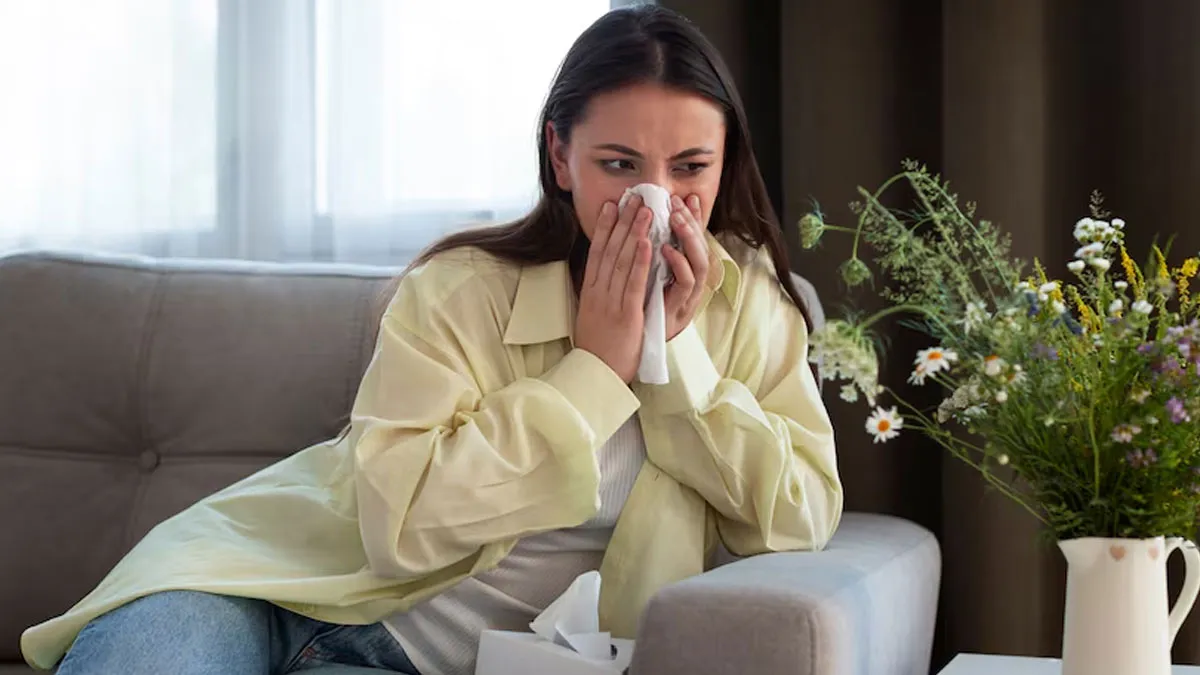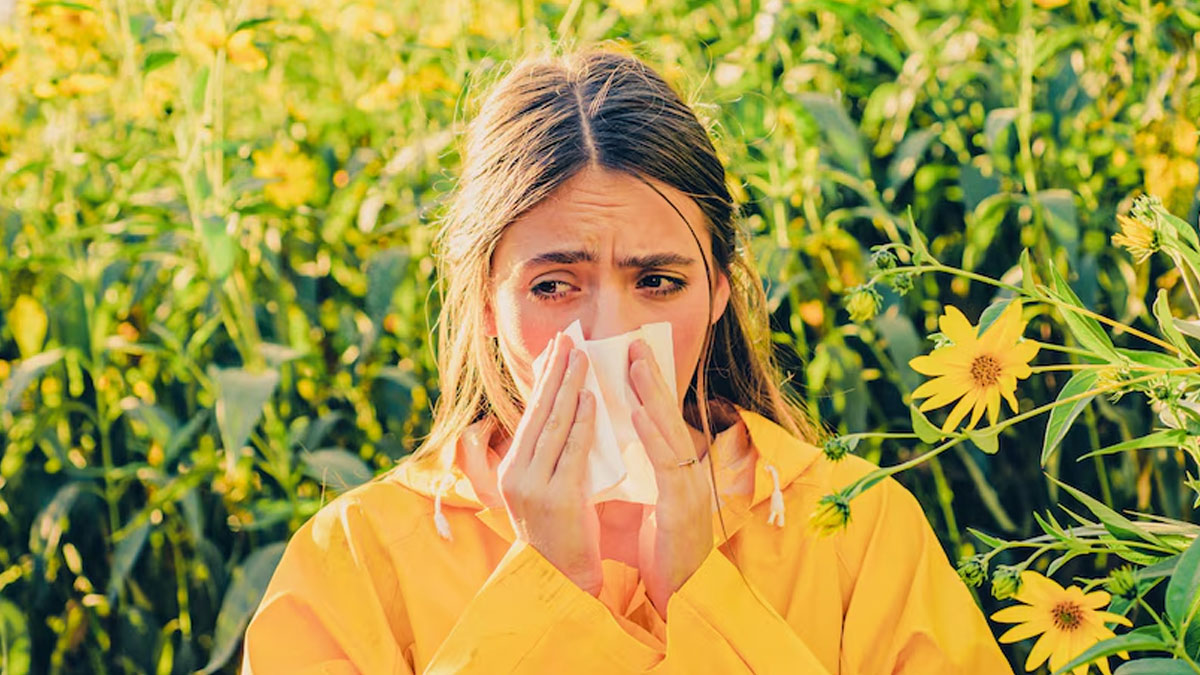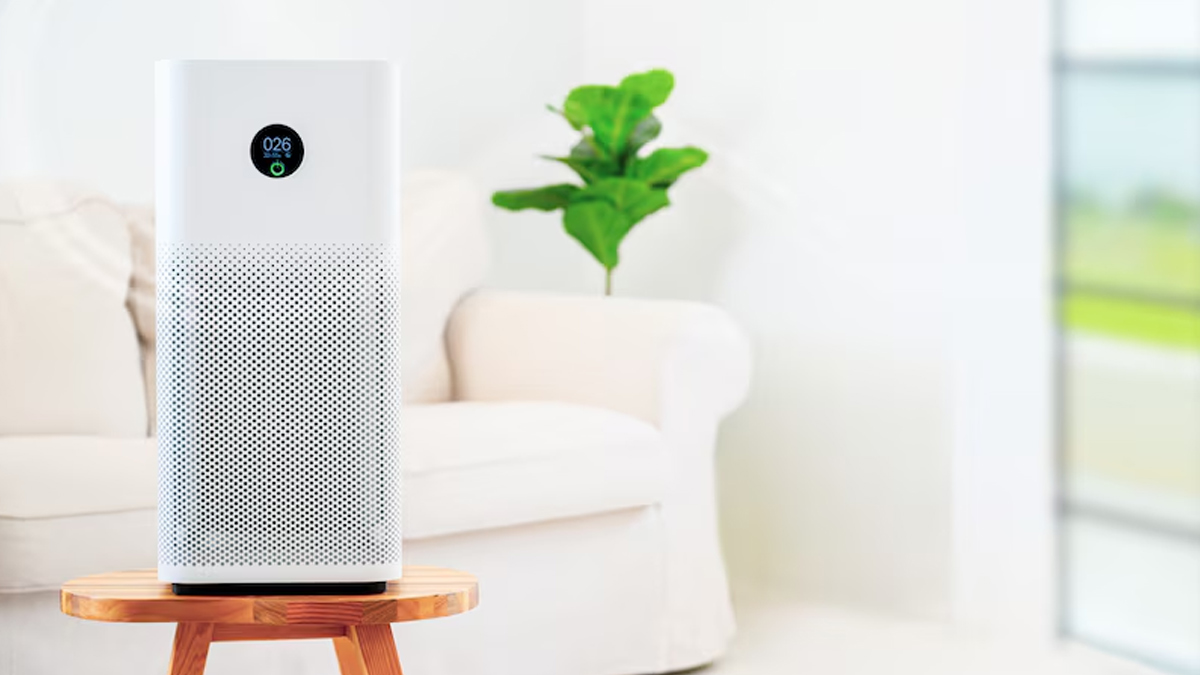
Allergies are something most of us have experienced at some point, whether it is sneezing in a dusty environment or during the allergy season where pollen makes your life unbearable as you sneeze all the time, or the itching skin after you’ve had certain foods. But allergies become a recurring issue and it leaves you thinking whether you have to live with it forever?
Table of Content:-
Well well well, while we are incapable of answering this question, doctors and healthcare experts can help you get an answer. To get an answer for this, OnlyMyHealth team interacted with Dr Sandeep Kisan Rajput, BAMS MD, Head of Department, Associate Professor Balrog, Paediatrics, YMT Medical College, Navi Mumbai.
According to Dr Rajput, allergies are not necessarily permanent, and their symptoms can often be managed effectively.
Understanding Allergies

Dr Rajput explains that allergies are not diseases that require permanent medication like conditions such as diabetes or high blood pressure. "Allergy is not a permanent disease," says Dr Rajput. "Just like we have to take permanent medicines for other diseases like diabetes or high blood pressure, similarly, in allergies, we do not need to take medicines. We can be allergic to anything, dust, air, vegetables, specific foods, milk, or even the climate."
When a person comes into contact with an allergen, such as dust or a certain food, the body reacts, often causing symptoms like cold, cough, flu, itching, or even diarrhoea. These reactions are the body’s immune system overreacting to a substance that it mistakenly identifies as harmful.
Also read: Home Remedies For Eye Allergies: Doctor Shares Tips For Eye Care
The Role of Avoidance in Allergy Management
For individuals suffering from allergies, the most effective treatment is not always about taking medications but about preventing exposure to the triggers that cause the allergic reactions. Dr Rajput highlights the importance of identifying and avoiding these triggers. “For a person suffering from allergies, the best treatment is to stay away from the triggers and causes. In Ayurveda, this is called Nidan Parivarjan Chikitsa, which essentially means avoiding the root causes of the problem.”
Rather than relying solely on pharmaceutical treatments, Ayurveda encourages a proactive approach by addressing the root cause. By understanding what causes an allergic reaction and taking steps to avoid it, individuals can significantly reduce or even eliminate the symptoms.
Practical Steps for Avoidance
Dr Rajput explains that once allergens are identified, the next step is to make practical changes in daily life to reduce exposure. Some of these changes might include:

Using air purifiers: If dust or pollen is a trigger, using air purifiers at home or in the workplace can significantly reduce the presence of allergens in the air.
Avoiding specific foods: If food allergies are the problem, individuals should avoid eating known allergens. This might require careful attention when dining out or preparing meals at home.
Staying indoors during high pollen seasons: During seasons when pollen levels are high, it’s helpful to stay indoors, especially during early morning or late evening when pollen counts are often at their peak.
Using hypoallergenic bedding: For people allergic to dust mites or certain fabrics, investing in hypoallergenic bedding can be a game-changer in reducing night-time symptoms.
Wearing masks: In environments where allergens like dust or pollution are prevalent, wearing a mask can help prevent the allergens from entering the respiratory system.
Dr Rajput stresses that these strategies are more than just reactive measures. "The key message is that by understanding and systematically avoiding your specific allergens, you can significantly reduce or even eliminate allergic symptoms."
Also read: How To Take Care Of Yourself Around The Allergy Season
The Importance of Awareness and Prevention

While allergies may not always be permanent, the key to managing them effectively lies in being proactive. Dr Rajput encourages people to take the time to understand their specific allergic triggers, and to make necessary lifestyle adjustments. "By being mindful of your surroundings and making informed choices, you can lead a life where allergies are no longer a constant burden."
While some individuals may experience a reduction in allergic reactions as they age or with changes in their environment, others may continue to suffer from allergies throughout their lives. The good news is that with the right strategies, these allergic reactions can be minimized, allowing individuals to live more comfortably without constant worry about their symptoms.
Conclusion
Allergies are not a permanent, unchangeable condition. With a proper understanding of triggers and the right approach to avoidance, individuals can manage and even prevent allergic reactions from disrupting their lives. Whether it’s through lifestyle changes, the use of air purifiers, or simply avoiding certain foods or environments, the power to control allergies often lies in the hands of the person affected. Dr Rajput concludes, "Allergies are not something you are stuck with for life. With the right approach, you can significantly reduce their impact on your health and daily activities."
Also watch this video
How we keep this article up to date:
We work with experts and keep a close eye on the latest in health and wellness. Whenever there is a new research or helpful information, we update our articles with accurate and useful advice.
Current Version